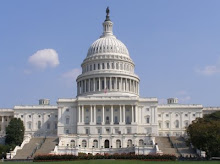The short answer is: not much. What is undisputed is that if an incumbent who has nearly universal name recognition in a state is still stuck somewhere in the 40's while his opponent is still introducting himself to the electorate is a dangerous thing. Harry Reid must be jumping for joy now that one poll has him ahead of Sharron Angle. Interestingly, Harry has been remarkably consistent for the last year-he's usually gotten between 39-44% support in polling and doesn't move much. Even with millions spent by his campaign and by independent groups, (unions, big pharma, trial lawyers) he still can't and probably won't climb much higher. The basic fact is that half of Nevadans won't vote for him under any circumstance-and that's simply not going to change. The key will be to see if Sharron Angle can stand on her own two feet and look attractive enough to the electorate to win. Reid has succeeded in framing the narrative that Angle is way to conservative for the state and she'll have to counter that. She'll have the money to do it and she'll spend the entire fall in the state campaigning.
Senate polls rise and fall pretty quickly in primaries and in general elections. Sue Lowden was way ahead of Angle for months in the Republican primary and ended up getting clobbered. In 1984 in Kentucky Mitch McConnell overcame a twenty point deficit in the last few weeks to beat incumbent Walter Huddleston. Debbie Stabenow surged in the last few days to beat Spencer Abraham in Michigan in 2000. In McConnell's case, he had to introduce himself and potray Huddleston as the liberal he was. Certainly he was helped by Ronald Reagan's huge victory in the state that year. Stabenow got a huge boost from the collapse of the Bush campaign in Michigan in the last days of the 2000 campaign with a solid GOTV effort by the Al Gore people to put her over the top.
Republicans Ron Johnson and Dino Rossi could certainly be giant killers this year. Both are taking on three-term incumbents (Russ Feingold and Patty Murray)and are in a strong position to win. All four candidates are in the mid-forties which tells you about the Democrats than their challengers. Both Feingold and Murray won easily in 2004 and were way ahead throughout their respective campaigns. If its this close on election day it will be likely that both Johnson and Rossi will win. Voter enthusiasm is on their side, they will win the Independent vote and they'll both have enough money to compete throughout the fall. If Murray and Rossi fall (along with Reid) the GOP will control the Senate in 2011. If the Democrats can hold two or all three seats they will retain slim control of the chamber.
Friday, July 16, 2010
Subscribe to:
Post Comments (Atom)

No comments:
Post a Comment